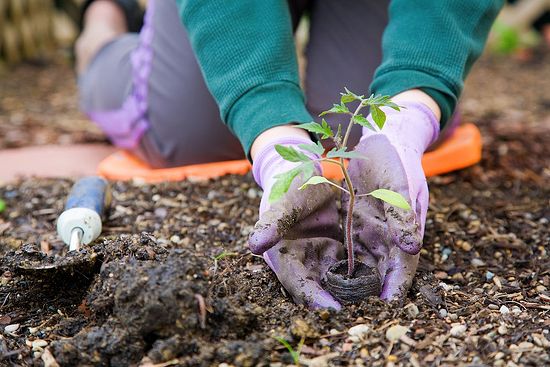Author and priest’s wife Tatiana Vigilyanskaya talks with psychologist Olga Lysova-Brodina on the upbringing of children.
Of all holy works, the education of children is the most sacred.—St. Theophan the Recluse.
I have had to confess people on their deathbeds many times. Their confessions are not about not having earned a million dollars, built a luxurious home or been successful in business. People in their final hours are full of regret, first of all, for not having done some good, not having helped or supported their family, friends or even incidental acquaintances. The second thing that torments almost everyone before death is that they gave so little time to their children.1 —Met. Tikhon (Shevkunov).
No matter what the task, talent and natural gifts are important, along with hard work and assiduousness. Even when it comes to raising children, there are some people that are like Mozarts and Salieris. Some parents raise their kids using their own intuition, without resorting to any theories, methodologies or techniques. They love their children, who then answer in kind, and they are united in true friendship. I remember an older acquaintance of mine who would tell me all about her son (who had been married for years) with such tenderness. And one day I saw how they met each other—an elderly mother and her adult son running toward each other like old friends who hadn’t seen one another for ages. Not only had Raisa (the mother) heard nothing about methods of child-rearing. She had hardly ever wondered how she ought to raise her son. She just loved him. This is what I mean by gifted parents and the “Mozarts” of child-rearing. Other parents, who make up the majority, are constantly baffled by their kids’ behavior and their intuition is mostly silent. They too love their children, of course, but they do so in a strange way. We parents are ready to lay down our lives for our children, to not eat or sleep for their sake, but to our horror we often see that our love is imperfect, that we often hurt our children, we get annoyed and argue with them, we don’t see eye to eye, and become alienated.
What can you do if you are one of the moms and dads who don’t have that natural talent for parenting, who didn’t have the best examples of how to raise kids from your own parents, who have more questions than insights based on your intuition? Should they read books and “prove harmony via algebra?”2 Books give a lot of inspiration. We often read them and think, “Now I’ll go do everything right.” But in practice it’s not all that easy—knowledge obtained from books meets serious, and sometimes insurmountable, obstacles—our nature, habits, the deep-rooted behavioral models we received from our parents, our fatigue, our focusing on ourselves and our own problems.
Moreover, what we lack is often not specific pedagogical talent but some simple human traits—wit, kindness and love. Children, even those with difficult temperaments, are always drawn to cheerful, kind adults who are easy to get along with.
So, what should they do, those parents who aren’t geniuses? The ones that are moms and dads, but not quite “skilled craftsmen?” The ones who realize that the difficulty of parenthood is not so much in their kids as in themselves? After all, wit is a gift, and kindness and love are cultivated through many years of work. And you can take all sorts of wrong and even destructive steps in the meantime.
We have brought these and other questions about parental love to Olga Lysova-Brodina, an Orthodox family psychologist.
How to avoid missed opportunities and grow together
—True Gospel kindness and wise, sacrificial love are rare gifts, but if we conclude that successful parenting is something that only an exceptionally intuitive parent can do—someone witty, cheerful, kind and able to love with self-sacrificial love—then most of us will feel bogged down very quickly, and end up with an inferiority complex as parents. It is rare for one person to combine all these “simple human traits” mentioned above. If, on top of this, we think good parents must also possess courtesy and tact, then we’ll feel totally discouraged. When parents come to me as a psychologist, it is painful for many of them to admit that they love their kids, but not as “wisely” as they want to. They often feel an acute lack of patience and warmth in their interactions with their children, and admitting this leads to a stalemate and causes them to lose heart. A psychologist has to put in quite a lot of effort to help parents understand that this is not a reason to feel discouraged or beat yourself up; rather, it’s a reason to work creatively on dealing with the difficulties that arise in their interactions with their children, acquiring new knowledge and cultivating their abilities. It’s important to understand that if God gave someone a child, it means that He has faith in him, that he or she has a talent for parenting, though it might be in an embryonic, latent state! It also means that this is a huge responsibility before God and one’s children. This talent has to be developed.
To avoid feeling bogged down, parents should remember that they can learn to acquire kindness, love and tactfulness together with their children, supporting one another mentally and prayerfully, and that it’s never late to learn. Psychologists often have to deal with serious missed opportunities when the love between children and parents has devolved into mutual hostility, open conflict and sometimes hatred. But even in such cases one can’t give up. When love between parents and children declines (as often happens when a child becomes a teenager), St. Ambrose of Optina’s advice can help: “If you want to have love, then perform deeds of love. The Lord will see your desire and effort and will put love into your heart.” And not only in the parent’s heart—He will give the children abundant love, respect and gratitude for their parents!
The essential duty of parental love is to purify the heart of passions
—But at the stage of spiritual development when this love is coming from a passionate heart that has not yet been transformed, it is usually quite hard to discern in a particular situation between these “deeds of love”, and what can cause harm—especially when it comes to children.
—Educational intuition is linked directly to the human heart. Truly wise love comes from a purified, humble heart. This love cannot go together with egotism, anger, impatience and pride. So, one of the most essential duties of parental love is to purify the heart of the passions. And the maxim of St. Seraphim of Sarov can serve as the most secure foundation: “Acquire salvation, and thousands around you will be saved as well.” But the purification of the mind and the heart is a long process, while it’s important to avoid making serious mistakes as one is taking one’s first steps as parents. Psychological and pedagogical knowledge can be helpful here. Discerning between “deeds of love” that will do good and what can cause harm in a particular situation is difficult if a parent’s only method of teaching is the “carrot and the stick.” This method most often leads parents (especially parents of teenage children) to a dead end. Without a creative approach to the process of raising children, it is hard to preserve warm, friendly, confidential relations with them.
In order to approach the issues of upbringing creatively, flexibly and wisely you need a rich pedagogical palette. That’s why obtaining pedagogical and psychological knowledge, even at a minimal level, is a very important duty of parental love. Today there are lots of opportunities to acquire a basic knowledge: books, the Internet, consulting a psychologist or an educational workshop. All of them can help you avoid blunders and move from a primitive and superficial educational approach to a creative and constructive one.
Vitamins L and A: Love and Affection
—In your view, how should parents start their self-education and which topics should they pay attention to in particular?
—There are several basic subjects. In my opinion, the main ones are the following: unconditional love, acceptance, respect. It’s hard to move forward without them. It is also vital to know the main educational models and their influence on the formation of character. Each model has its advantages and disadvantages and knowing them is very helpful. It’s also important to know basic information on types of temperament, the first symptoms of neurosis and psychopathy. Even minimal knowledge of these helps you not harm your child (by demanding things that are beyond his capacity) and to notice at the right time that he needs help, or that he can’t cope with his emotions and stresses, or that he feels bad because of the methodology you are using. If you are attentive, this knowledge can help you detect the first symptoms of a neurosis or psychopathy. Then, if necessary, you will be able to consult a professional and thereby prevent the development of the disease. This is a very important duty of love, but not the key one!
Knowledge is of great importance, but you shouldn’t overestimate its power. It can help you avoid making big mistakes, but it can’t give the things children need the most: love and affection. I am not afraid of being banal and will say something everybody knows but often forgets to apply in everyday life: I call it “vitamin L and vitamin A”—love and affection. Psychologists don’t tire of saying that children’s primary need is for love and affection. Usually, when a child grows up, turns into an unruly teenager and stops provoking natural tender feelings, the topic of love is left on the sidelines. But in order to overcome crises, he needs to feel loved all the time. It’s important for a child to understand that others have faith in him and see good things in him. So, we shouldn’t forget to say warm and affectionate words to children, without waiting for kindness and tenderness to well up inside us. Even if outwardly we do everything right—develop our child spiritually, physically and intellectually—if we don’t strive to give him simple warmth, unconditional acceptance and respect, we encourage him to seek emotional experiences and joys outside the home. And the consequences of that can be very unpredictable.
—I believe many loving parents are simply unable to express their love. They’re afraid to say too many tender words so as not to “spoil” their child, thinking that a severe tone will keep him from excesses. And many are cold by nature and believe that daily care for their little ones is the expression of parental love. But such parents feel that the relationship with the child is somewhat strained.
—Of course. They lose the possibility of building a warm relationship based on trust. And without it, the process of upbringing is like mere training.
If we feel we are too rational or cold, we must make it a rule to put all our work aside, if only once a week, sit down next to our child, embrace him, say that we love him and ask him if he needs our help. If he doesn’t want to embrace, then just ask him to have a cup of tea together, or talk quietly, unhurriedly, without reserve and without moralizing, watch a good film, or share experiences with each other. We often overestimate the power of denunciations and strict (even when justified) instructions and underestimate the power of a simple, warm parental smile and kind, endearing encouragement. But that is what, coupled with our prayer for our children, can work wonders.
A few years ago, one mother made me glad. While we were riding the subway, she told me about her grown-up daughter’s serious crisis—she was sharp with her mother, shirked lectures, had complicated relationships with guys and was going to give up her medical studies. I said that we would help her get through the tough period together, that a psychologist should speak to her, and those around her should arm themselves with patience… Suddenly the mom took her cellphone out and started texting. A minute later she got a reply and smiled. Since I’ve been very close with her, she showed me her correspondence. There were only two phrases—one from each: “I love you.” And the reply: “I love you too.” Now they are best friends. Her daughter has become a nurse and is going to enter a medical institute; she got married and became a mother.
At the end of the first talk I’d like to cite Erich Fromm, an outstanding psychoanalyst and philosopher who examined the theme of love thoroughly:
“This attitude—that nothing is easier than to love—has continued to be the prevalent idea about love in spite of the overwhelming evidence to the contrary… If this were the case with any other activity, people would be eager to know the reasons for the failure... The first step to take is to become aware that love is an art... If we want to learn how to love we must proceed in the same way we have to proceed if we want to learn any other art... But, aside from learning the theory and practice, there is a third factor…—the mastery of the art must be a matter of ultimate concern; there must be nothing else in the world more important than the art.”3
To be continued.





